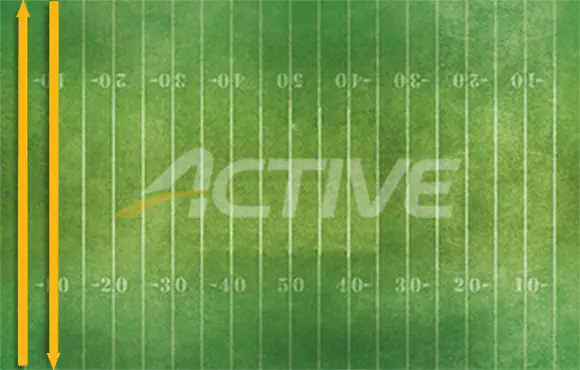Having chosen a basic training schedule (and a specific race time goal), readers of McMillan's book move on to Step Two: "Your Personal Running Evaluation." Within this step, you're encouraged to think through three questions:
- How do I respond to training?
- How do I recover from training?
- How do I adapt to training?
The first of these questions allows you to identify yourself as one of three basic breeds: a speedster, an endurance monster, or a combo type. The second question helps you determine your "sweet spot" for weekly running mileage, which McMillan describes as the amount of running, "for each runner that challenges the body to get fitter and faster but keeps injuries at bay." A short exercise associated with the third question takes you through a list of various types of workouts and asks you to decide, based on past experience, whether you tend to recover quickly or slowly after completing a workout of each type.
This entire self-evaluation process is very easy. It's also fun—you learn a lot about yourself as a runner by going through it. And the knowledge you gain from it is immediately useful. McMillan shows you how to modify your chosen training schedule based on how you respond to, recover from, and adapt to training. Obviously, if you're a beginner, you don't have the experience that is needed to get the most out of the self-evaluation process, but McMillan offers guidelines that enable new runners to make sensible adjustments to their training template as well.
More: Quiz: Are You Really a Beginning Runner?
The rest is execution. Greg McMillan is perhaps best known for his Running Calculator, and this tool plays a crucial role in ensuring that you execute your customized training plan effectively. The calculator itself is not in the book—you have to go online to use it. Once you're there, you simply enter a recent race time and a goal time for an upcoming race, and the calculator spits out recommended training paces for every kind of workout. For example, if you enter a marathon goal time of 3:05, you will be told to do your easy runs at 7:25 to 8:25 per mile, your 400-meter speed intervals in 1:25 to 1:29, and so forth.
Getting the intensity right is one of the most important and frequently botched elements of training customization. The most common mistake that runners make in relation to intensity is doing their easy runs too fast. By incorporating the Running Calculator into his custom plans, McMillan eliminates the very possibility of such mistakes—as long as you follow orders.
If runners could trust that everything would always go according to plan in the training process, McMillan could have left it here. But as he writes, "Inevitably, something will come up." The final steps in McMillan's system for self-coached runners explains how to adjust your plan appropriately when things don't go as expected. He provides clear and simple guidelines for dealing with every common conundrum. For example: "Never try to make up a botched workout." These eight words alone can prevent many training programs from going off the rails.
More: How to Troubleshoot During Run Training
By the time you finish reading You (Only Faster), you will have created a complete, fully customized training plan for your next race, and more important, you will have learned how to do it again for the next race after that. Best of all, McMillan's extremely practical new book contains rules and tips that will enable you to keep learning and growing as a self-coached runner for a lifetime.
More: Quiz: Do You Need a Running Coach?
 Sign up for your next race.
Sign up for your next race.- 2
- of
- 2
About the Author

Get ACTIVE on the Go


Couch to 5K®
The best way to get new runners off the couch and across the finish line of their first 5K.
Available for iOS | Android






Discuss This Article